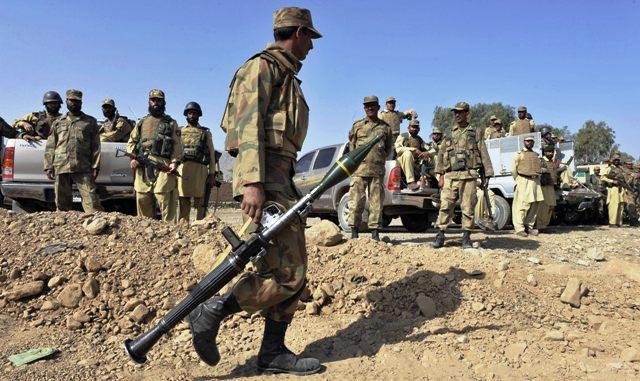At least 51 people, including 40 civilians and 11 soldiers, were killed during the cross -border attacks of India against Azad Jammu and the cashmere and Pakistani territory, said the Pakistani army, qualifying the attacks of “unlike and reprehensible”.
The victims took place during a military climbing in the night of May 6 and 7 during which the Indian forces deliberately targeted residential areas, including women, children and the elderly, said inter-service public relations (ISPR) on Tuesday.
“These barbaric strikes led to the martyrdom of 40 civilians – among them 7 women and 15 children,” said the ISPR. At least 121 others were injured, including 10 women and 27 children.
The ISPR said 11 staff of the Pakistan Armed Forces staff had also been killed in combat during the defense of the region. Others-eight-eight were injured.
“The armed forces have set up a resolute response … offering precise and measured reprisals,” added the press release.
The army published the names of the fallen staff, which included members of the Air Force and the Unit on the ground:
Naik Abdul Rehman, launches Naik Dilawar Khan, launches Naik Ikramullah, Naik Waqar Khalid, Sepoy Muhammad Adeel Akbar, Sepoy Nisar, leader of the Us USUF Squadron Yousuf, chief technician Aurangzeb, principal technician Najeeb, corporal technician Farooq and main technician Mubashiir.
“Their noble sacrifice is a lasting symbol of unshakable courage, devotion and patriotism – engraved forever in the memory of the nation,” said ISPR.
The declaration continued: “The armed forces, as well as the people of Pakistan, pay solemn tribute to marked civilians and military staff, and offer sincere prayers for the rapid recovery of the wounded.”
It ended with a warning, declaring that any attempt to challenge Pakistan’s sovereignty “will be welcomed with a quick, full and decisive, Inshallah” response. “
Earlier, senior military officials from Pakistan and India held their first round of talks through a hotline on Monday and agreed to keep the cease-fire agreed on Saturday after the five-day war.
As part of the cease-fire agreement, negotiated by the United States, the Director General of Military Operations (DGMO) of the Pakistani Major-General Kashif Abdullah and his Indian counterpart, the LT Gen Rajiv Ghai, spoke.
The ceasefire in India-Pakistan follows climbing, but a fragile calm persists
A complete and immediate ceasefire between India and Pakistan was announced on May 10 after days of increased military exchanges that brought nuclear neighbors to the edge of the war.
The announcement was made for the first time by US President Donald Trump and later confirmed by Pakistani Prime Minister Shehbaz Sharif, Vice-Prime Minister Ishaq Dar, Indian Foreign Affairs Minister S. Jaishankar and US Secretary of State Marco Rubio.
The tensions broke out after an attack on April 22 in Pahalgam, the Indian illegally occupied Jammu-et-Cachemire (Iiojk), which made 26 dead civilians.
India blamed the elements based in Pakistan without presenting any evidence, Islamabad rejected the allegations. In response, India has closed the Wagah border, revoked visas and suspended the Water Treaty of the Indus – Move Pakistan called “Act of War”.
The conflict has intensified with the allocation of missiles from India and drone incursions when it launched its Sindoor operation.
The Pakistan army launched the Bunyan-Un-Marso Operation in retaliation, and announced that it had shot down five Indian planes, including Rafales-and intercepted 77 Harop Israeli manufacturing drones.
After a diplomatic intervention led by Washington, the two parties agreed to stop military activity through land, air and sea. However, hours after the break, fresh skirmishes were reported on both sides of the control line.
Explosions were heard in Srinagar and shooting exchanges were cited by officials on both sides, which raises concerns about the sustainability of the ceasefire.
Pakistan’s Foreign Office reiterated its commitment to the ceasefire while accusing India of violations.
DG ISPR LT Gen Ahmed Sharif Chaudhry stressed that Pakistan had not asked for the truce, saying that India had initiated the ceasefire request after the pakistan reprisal strikes. He described the war between two nuclear powers as “inconceivable” and “an absurdity”.
Chaudhry confirmed that no Indian pilot was in police custody, rejecting viral allegations as disinformation.
He called the Bunyan-Un-Marsoos operation unified national response to Indian assault, noting that Pakistan had given its commitments to respond decisively and proportionate.
The cities of Pakistan observed that you observed you on Sunday Youm-E-Tashakkur (day of thanks) to mark what was praised at the national level as a successful defense of national sovereignty.




